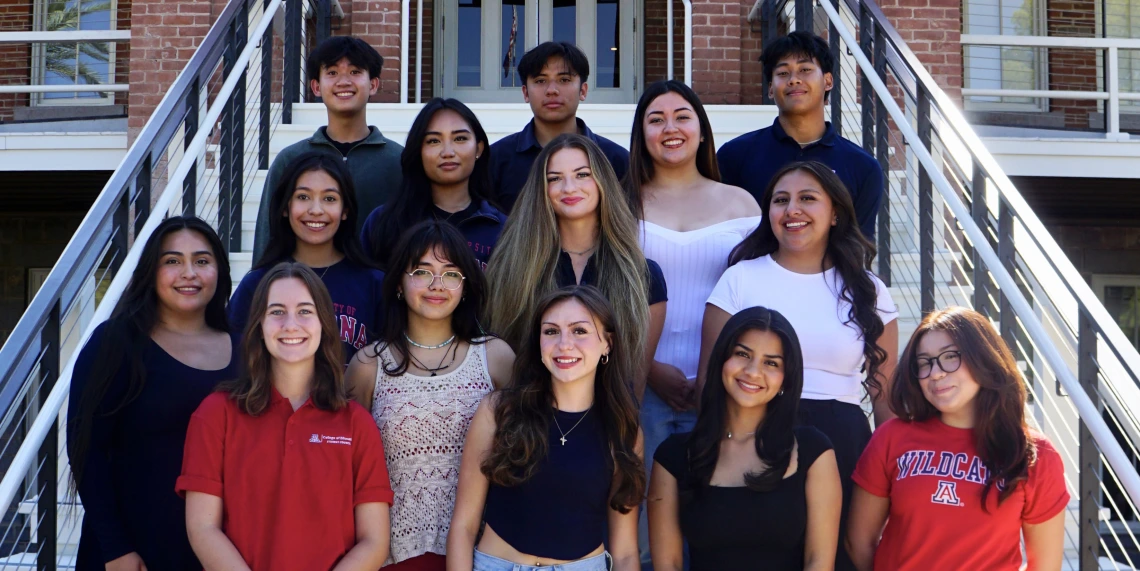Federal renewal keeps U of A TRIO programs strong

University of Arizona TRIO program students who are now giving back by working as peer mentors.
Tucson, AZ—Two federal TRIO Student Support Services (SSS) programs at the University of Arizona, TRiO ASEMS and TRIO Teacher Prep, have officially had their funding renewed through August 2030. This means hundreds of students who are first-generation, low-income, or have a disability will continue receiving critical support as they work toward graduation.
The Department of Education funds TRIO programs to aid undergraduate students facing systemic challenges such as food insecurity and limited access to financial and academic resources. Providing holistic support, these programs are proven to help students graduate and transition successfully into either the workforce or graduate education.
TRiO ASEMS director Corrie Sommerfield says the STEM program directly serves 125 students annually through workshops, tutoring, and mentoring. More than 90% of participants maintain good academic standing and progress toward their degrees.
"Our program helps students stay in their programs even when it isn’t easy." — Corrie Sommerfield
“Our program helps students stay in their programs even when it isn’t easy,” Sommerfield says. She says TRiO ASEMS is deeply collaborative, working closely with other colleges around Tucson, including Pima Community College, to best serve each student and their career vision.
Fatemma D. Soto-Herrera, director of TRIO Teacher Prep, focuses on shaping the next generation of teachers—many of whom are the first in their families to attend college. The 140 students the program serves each year maintain a 95% good academic standing rate, with 97% of students either graduating or continuing their studies. “We are increasing the number and quality of much-needed teaching professionals in our communities,” she says.
Soto-Herrera emphasizes the family transformation that occurs when a first-generation college student graduates. “They provide a unique perspective and opportunities for all of their family members, particularly younger siblings,” she says. “Having that degree is a game-changer. Graduates truly change their family tree.”
Core to both TRIO SSS programs are one-on-one coaching, peer mentorship, skill-building workshops, and opportunities for professional development. Program alumni return to campus to mentor students, contribute to panel discussions, provide test preparation for certification exams, council on graduate school applications, and offer targeted career development guidance.
“It’s a full-circle support system,” says Soto-Herrera.
“TRIO is the reason a lot of our students are still in college,” Sommerfield adds.

